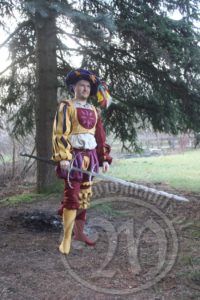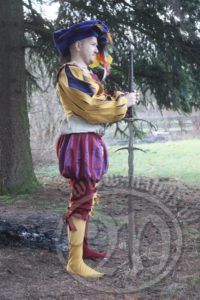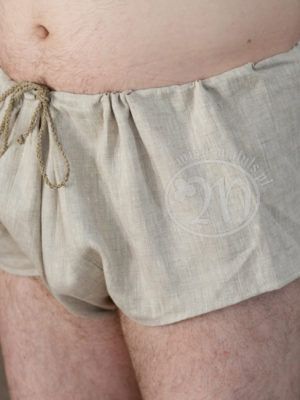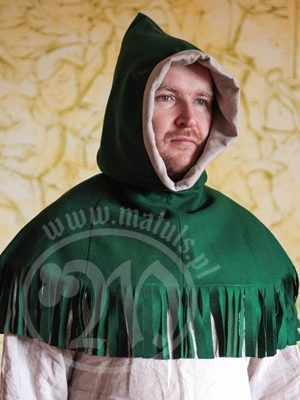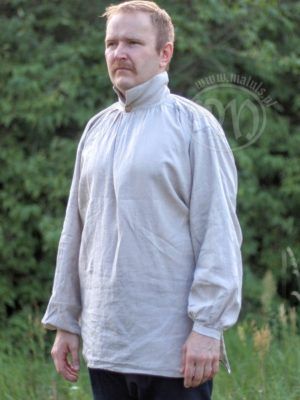Landsknecht costume
1,200.00 €
Complete Landsknecht costume.
We offer here sewing of the complete Landsknecht costume.
We can make any pattern and any modifications, depending on individual preferences of the buyer.
Complete Landsknecht costume.
We offer here sewing of the complete Landsknecht costume.
We can make any pattern and any modifications, depending on individual preferences of the buyer.
We have many historically correct types of materials. It is also possible to use fabric on special order.
We can make the whole costume by machine or for greater historical correctness – by hand.
Landsknecht’s costume, shown in the picture is made of wool and silk brocade.
The cost of its making is valued at the sum shown next to the product, therefore it should be treated only as the base sum.
We will present the correct price after receiving a complete order from the customer.
The Landsknechte (also rendered as Landsknechts; singular: Landsknecht, pronounced [ˈlantsknɛçt]) were German-speaking mercenaries used in pike and shot formations during the early modern period. Consisting predominantly of pikemen and supporting foot soldiers, their front line was formed by Doppelsöldner (“double-pay men”) renowned for their use of arquebus and Zweihänder. They formed the bulk of the Imperial Army (Holy Roman Empire) from the late 1400s to the early 1600s.
The Germanic compound Landsknecht (earlier Lantknecht, without Fugen-“s”) combines Land and Knecht to form “servant of the land.”The compound Lantknecht was used during the 15th century for bailiffs or court ushers.
The word Landsknecht first appeared in the German language circa 1470 to describe certain troops in the army of Charles, Duke of Burgundy. As early as 1500, the term was morphed into Lanzknecht, referring to the unit’s use of the pike as its main weapon.
They were distinguished by their extravagant, bright outfits and wide roundabout hats decorated with feathers (red or white) or tall ones similar to cylinders, silk stockings, leather boots with a buckle in the middle of the foot.
The Tross were the camp followers or “baggage train” who traveled with each Landsknecht unit, carrying military necessities, the food, and the belongings of each soldier and his family. The Tross was made up of women, children and some craftsmen. Women and young boys set up Landsknecht camps, cooked, mended injuries, and dug and cleaned latrines. A Landsknecht was usually forbidden by his Bestallungsbrief from having more than one woman in the baggage train. The Tross was overseen by a “whore’s sergeant” (Hurenweibel).


